In today's world, where privacy is paramount, understanding the importance of confidentiality in social services is crucial. By safeguarding personal information, we not only protect the individuals we serve but also foster trust and open communication. This confidentiality agreement serves as a vital framework for ensuring that sensitive information remains secure and is used appropriately. Curious to learn more about how we can navigate these delicate conversations? Keep reading!

Purpose of Confidentiality
Confidentiality plays a crucial role in social service agencies, protecting sensitive client information and ensuring trust in the therapeutic process. This agreement establishes a legal framework for safeguarding personal data collected during sessions or interactions. Key aspects include maintaining privacy for clients' names, financial details, health records, and any disclosed personal challenges. Compliance with legal standards, such as the Health Insurance Portability and Accountability Act (HIPAA) in the United States, is essential to safeguard against unauthorized access. Failure to adhere to confidentiality protocols can result in legal implications for staff and compromise the safety and dignity of clients. Empowering clients to share openly without fear of judgment or discrimination promotes a supportive environment for recovery and personal growth.
Definition of Confidential Information
Confidential information in a social service agency context encompasses personal, sensitive data pertaining to clients, which includes names, addresses, social security numbers, medical records, and financial details. This information is vital to maintaining client privacy and trust within the agency, and it must be safeguarded at all costs. Client interactions, case notes, and assessment reports represent additional confidential material that professionals within the agency must treat with utmost discretion. Violations of this confidentiality can lead to significant legal repercussions, affecting client relationships and the agency's reputation in the community. Understanding and adhering to the definition of confidential information is essential for all employees, volunteers, and partners associated with the agency.
Obligations and Responsibilities
Social service agencies maintain strict confidentiality to safeguard clients' sensitive information. Legal requirements, such as HIPAA (Health Insurance Portability and Accountability Act), enforce privacy standards for healthcare providers, impacting social service practices. Staff members must undergo training on the ethical handling of client data, understanding consequences of breaches. In addition, agencies must implement secure data storage solutions, including encrypted systems and limited access protocols, to protect client files. Regular audits are essential for compliance, ensuring that all employees adhere to confidentiality policies, ultimately fostering trust within communities.
Exceptions to Confidentiality
Confidentiality agreements, particularly in social service agencies, are critical in safeguarding client privacy. However, certain exceptions exist which allow information disclosure without client consent. Legal mandates, including child abuse or neglect reporting, require professionals to report suspicions to authorities; this includes state agencies or law enforcement. Immediate threats, such as potential harm to self or others, also obligate social service providers to act in the interest of safety, often through contacting emergency services or police. Additionally, cases involving serious criminal activities or court-ordered disclosures necessitate sharing of information to comply with legal requirements. Understanding these exceptions helps maintain ethical standards while ensuring necessary interventions for client welfare.
Consequences of Breach
A confidentiality agreement established by a social service agency outlines the importance of protecting sensitive client information, such as personal identification details, medical history, and case records. Breaching this agreement can lead to severe consequences, including legal repercussions under the Health Insurance Portability and Accountability Act (HIPAA) for violating privacy rights. Additionally, the agency may impose disciplinary actions, including termination of employment for staff members involved. A breach can undermine trust, damaging the reputation of the agency within the community, particularly in places where client privacy is paramount, like mental health and substance abuse programs. Furthermore, individual clients may seek compensation for damages, creating financial liabilities for the agency.
Letter Template For Social Service Agency Confidentiality Agreement Samples
Letter template of confidentiality agreement for social service agency staff.
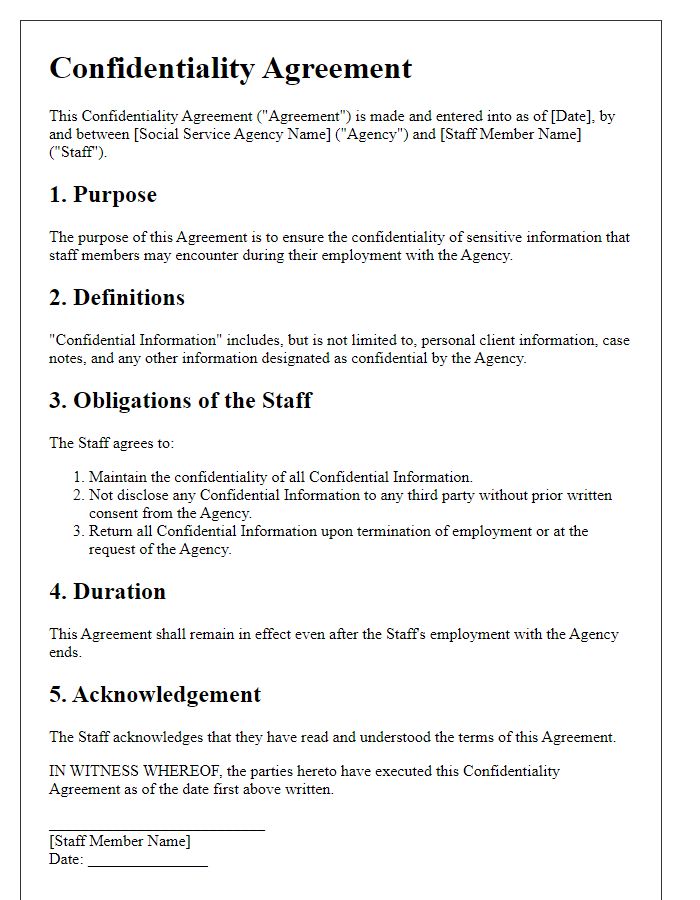
Letter template of confidentiality agreement for volunteers in social services.
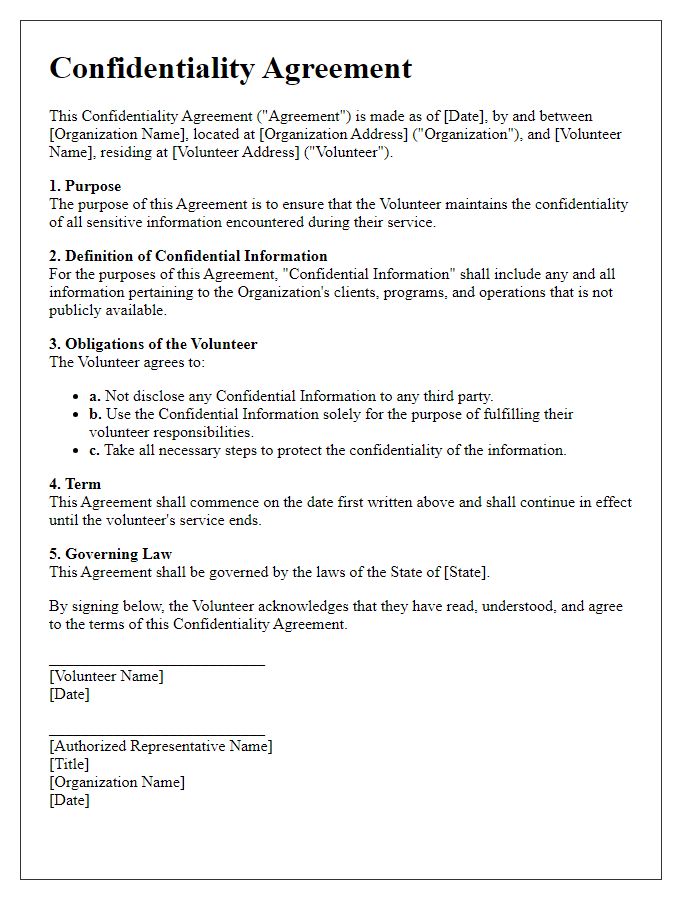
Letter template of confidentiality agreement for clients of social service organizations.
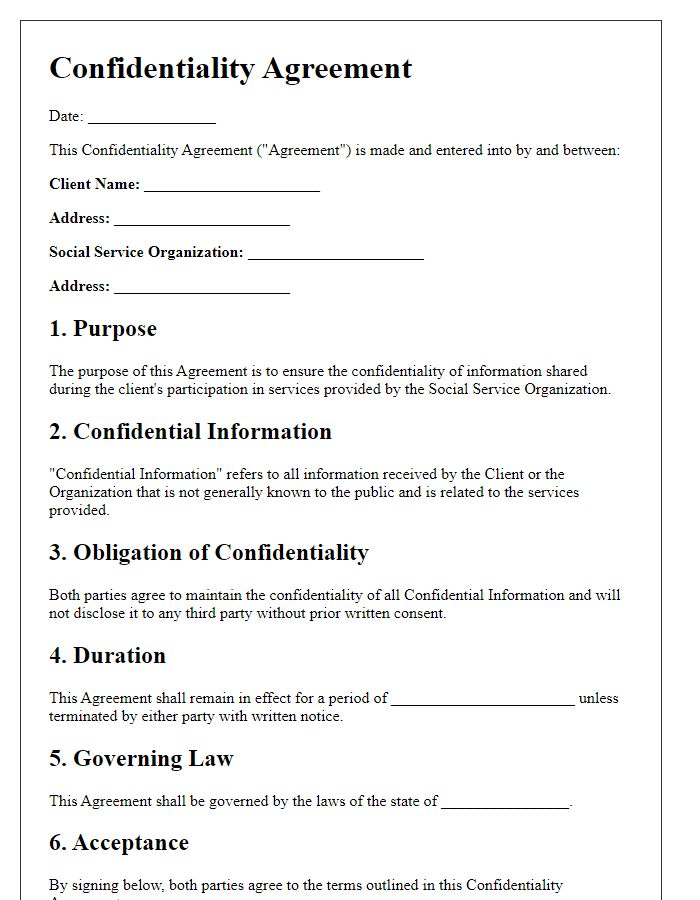
Letter template of confidentiality agreement for interns at a social service agency.
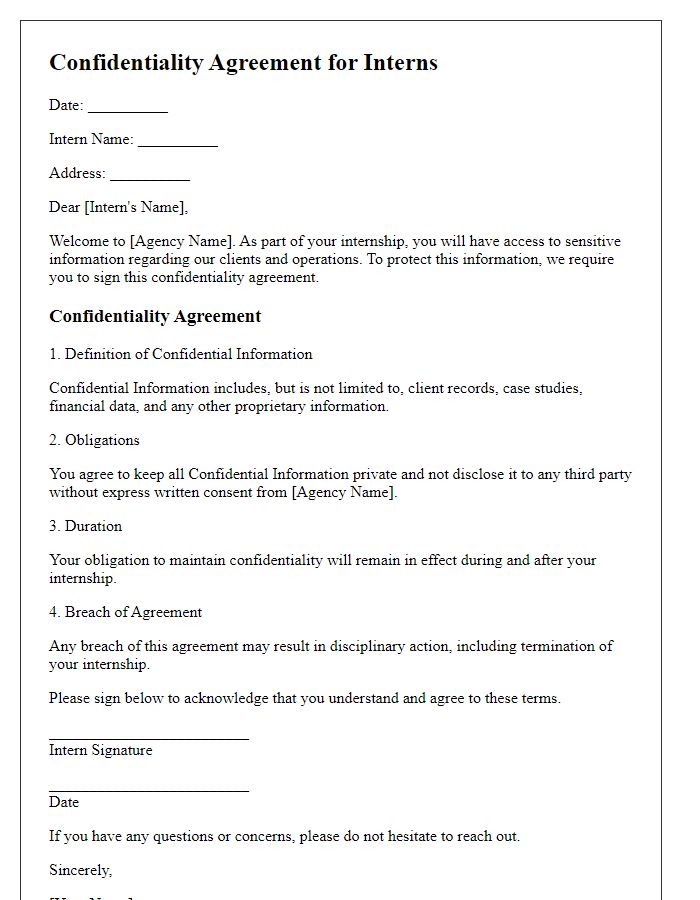
Letter template of confidentiality agreement for third-party service providers in social services.
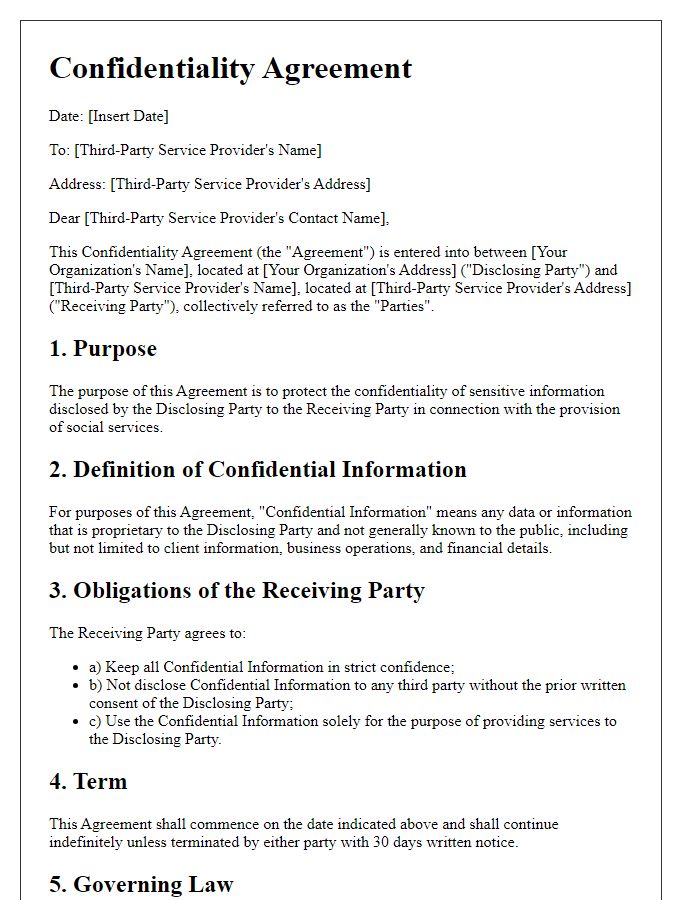
Letter template of confidentiality agreement for board members of a social service agency.
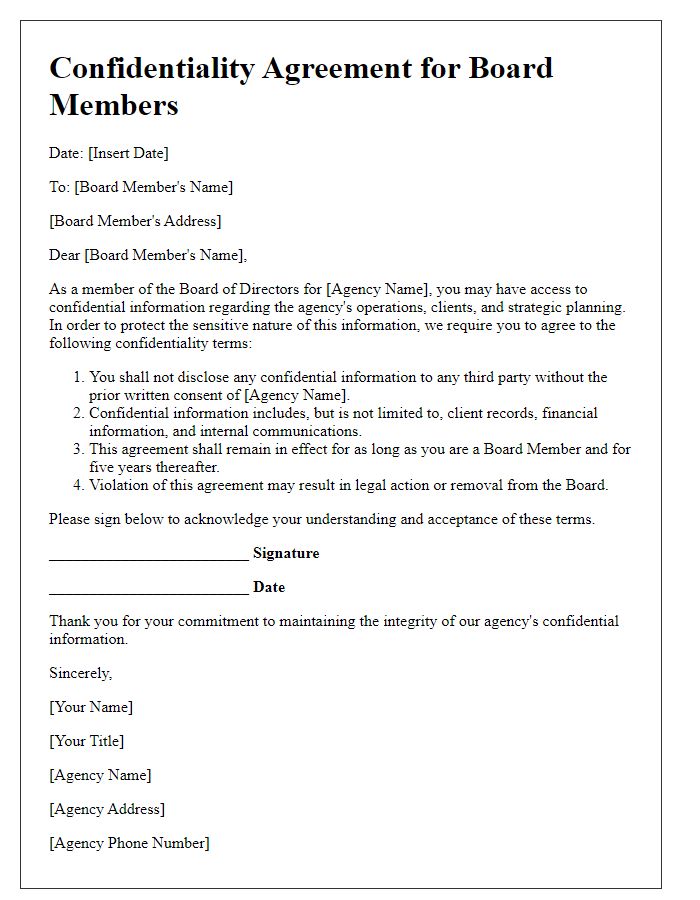
Letter template of confidentiality agreement for researchers collaborating with social services.
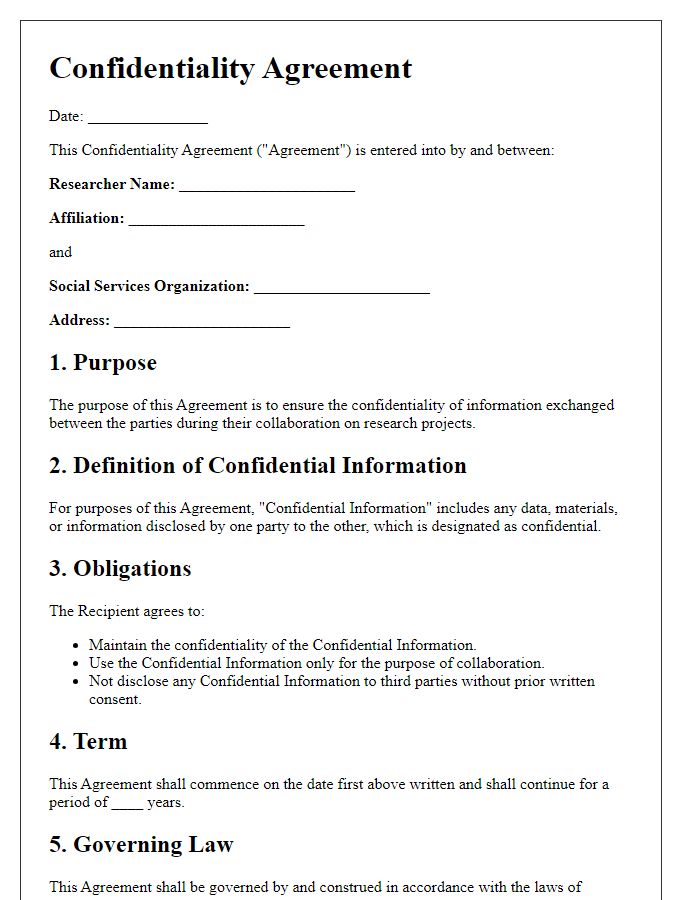
Letter template of confidentiality agreement for contractors in social service settings.
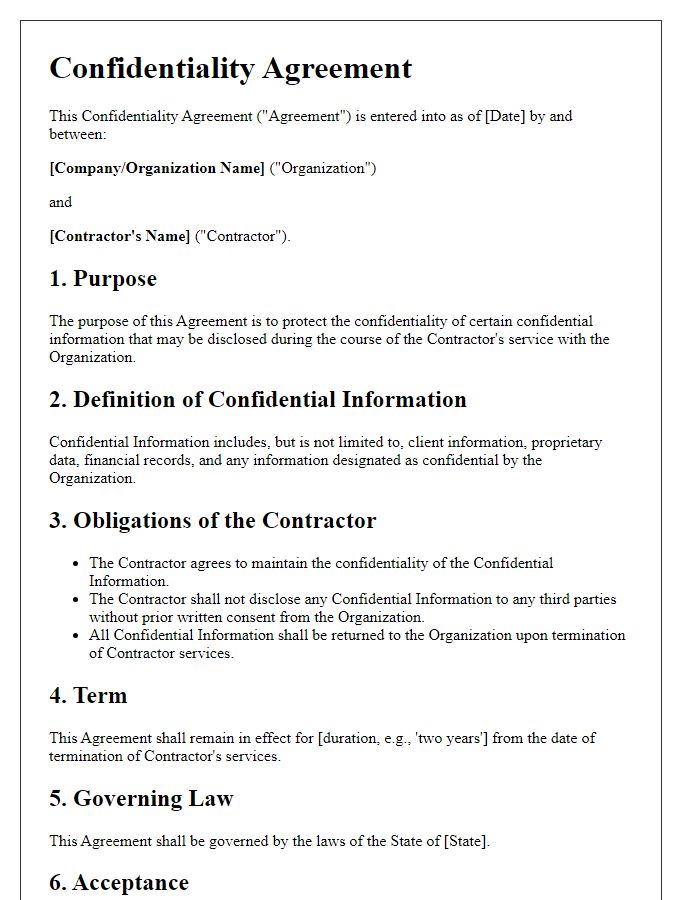
Letter template of confidentiality agreement for partners in social service projects.
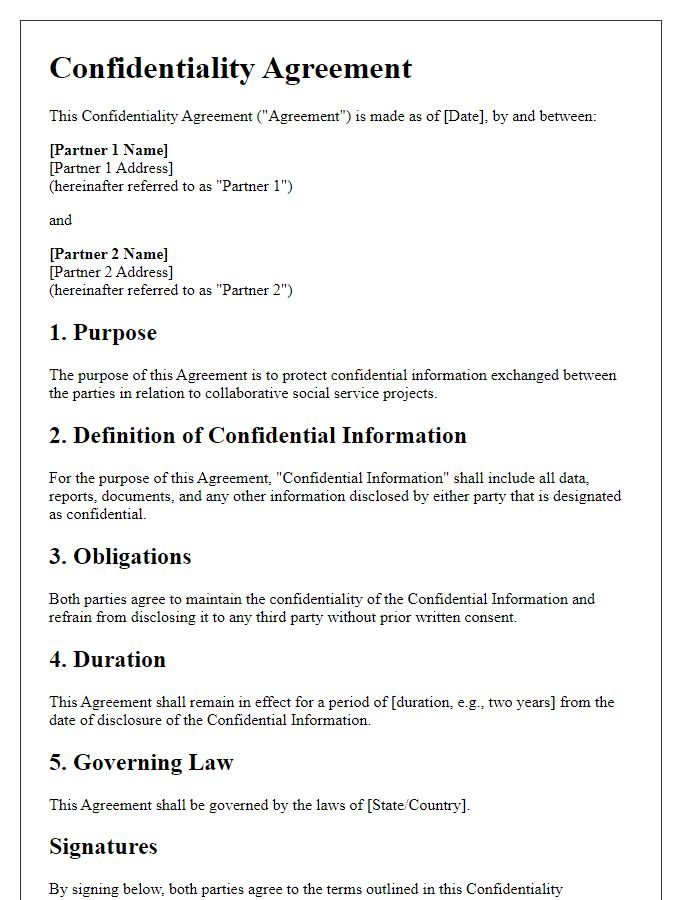

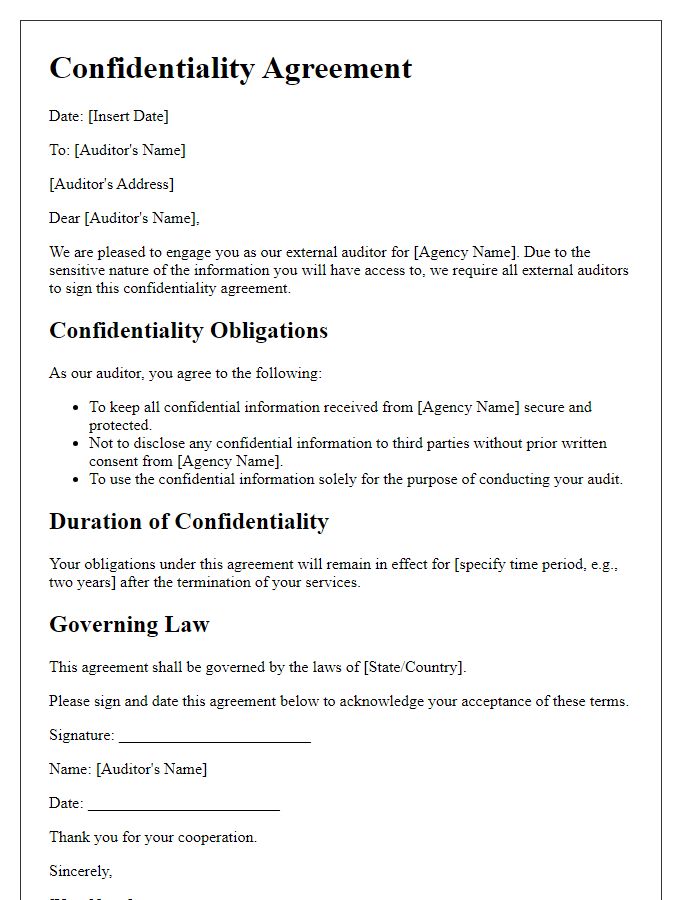

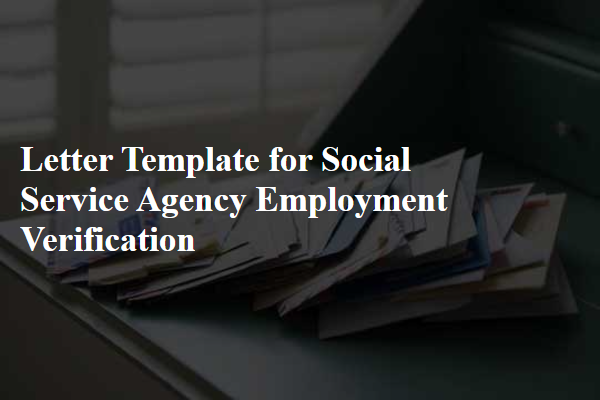
Comments